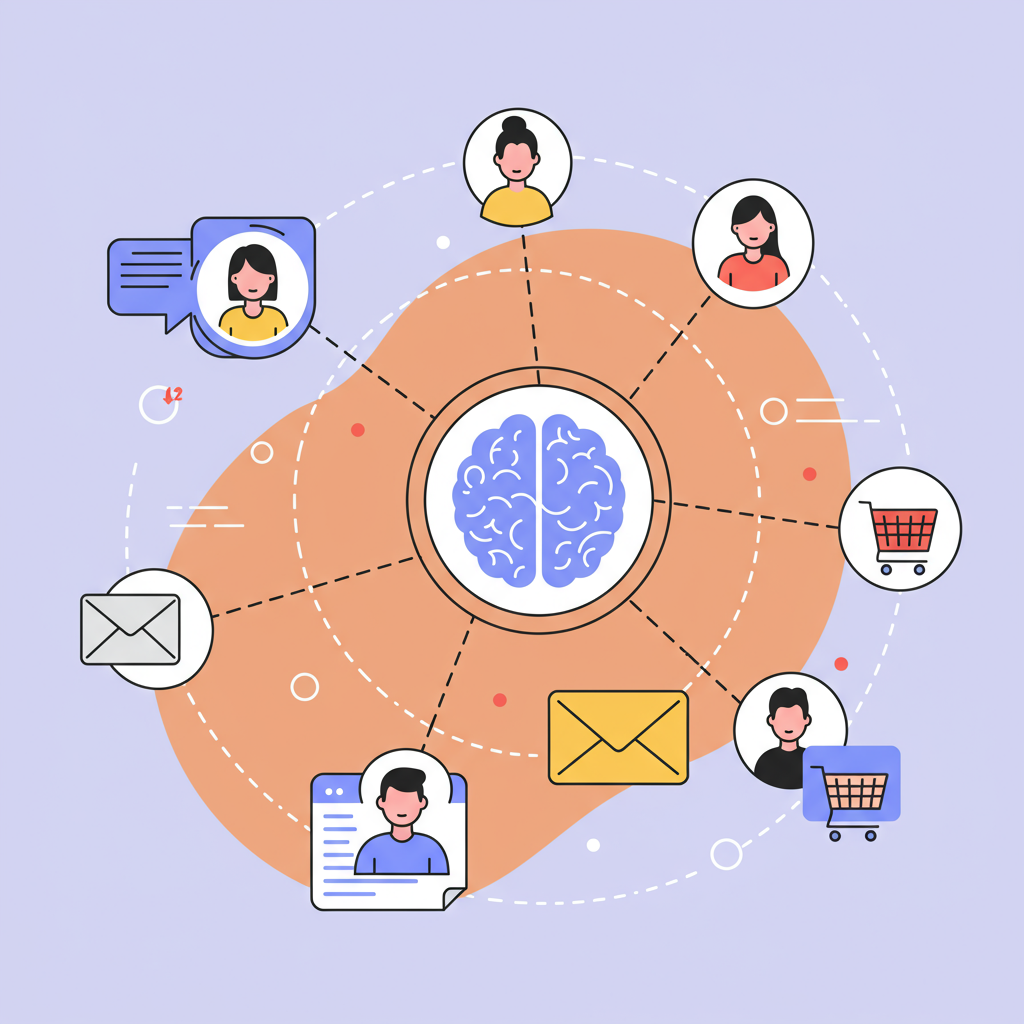Transforming Transactions into Lasting Relationships for Shopify Merchants
As a dropshipper, I’ve always understood the unique challenges we face in building genuine customer relationships.
Unlike traditional retail, there’s no physical storefront, no face-to-face interaction, and often, no direct handling of inventory.
This distance can sometimes make our customers feel like just another transaction, rather than valued individuals.
But I’ve learned that this doesn’t have to be the case. In fact, it presents an incredible opportunity for innovation.
The key, I’ve discovered, lies in leveraging technology to bridge that gap and foster deep, personal connections.
Specifically, I’m talking about the transformative power of Artificial Intelligence (AI) in crafting highly customized email marketing campaigns.
Gone are the days when a generic “Dear Customer” email would suffice. Today’s consumers expect more.
They want to feel seen, understood, and catered to. They want offers and content that resonate directly with their needs and preferences.
This is where AI steps in as our most powerful ally. It allows us to move beyond basic segmentation and into true one-to-one marketing at scale.
So, how exactly does AI help us achieve this level of personalization in our Shopify dropshipping stores?
First, AI excels at data collection and analysis. It can process vast amounts of customer data far more efficiently than any human.
This includes browsing history, past purchases, abandoned cart items, demographic information, and even engagement with previous emails.
With this rich data, AI can then perform sophisticated customer segmentation. It identifies patterns and groups customers based on shared behaviors or characteristics.
Imagine segmenting customers not just by “new” or “returning,” but by “frequent buyer of eco-friendly products” or “browsed hiking gear but didn’t purchase.”
Once segments are defined, AI truly shines in content generation. It can dynamically recommend products that are highly relevant to each individual.
It can suggest complementary items, offer personalized discounts based on past spending habits, or even tailor the language and tone of the email.
Beyond content, AI also optimizes the timing of your emails. It learns when individual customers are most likely to open and engage with your messages.
This means sending a cart recovery email at the precise moment a customer is most receptive, rather than a generic 30 minutes later.
Furthermore, AI is invaluable for A/B testing. It can rapidly test different subject lines, call-to-actions, and email layouts to determine what performs best for specific segments.
This continuous optimization ensures your campaigns are always improving, leading to higher open rates, click-through rates, and ultimately, conversions.
Now, let’s talk practical steps for us Shopify merchants. The first step is choosing the right AI-powered email marketing app from the Shopify App Store.
There are many excellent options available, each with unique features. Look for one that integrates seamlessly with your Shopify store and offers the AI capabilities I’ve mentioned.
Once integrated, ensure your data sync is robust. The more data your AI tool has access to, the more accurate and effective its personalization will be.
Next, begin defining your initial segments. While AI can do this automatically, understanding your customer base helps you guide the AI’s learning process.
Then, start crafting your email templates. Many AI tools offer pre-built templates that you can customize, and some even use AI to help write compelling copy.
Let me share some examples of personalized campaigns I’ve found incredibly effective using AI.
A personalized welcome series for new subscribers, recommending products based on their initial browsing or sign-up source.
Highly targeted abandoned cart recovery emails, not just reminding them of their cart, but perhaps offering a small incentive on the specific items they left behind.
Post-purchase follow-ups that don’t just ask for a review, but offer care tips for the purchased product or suggest related items based on their recent order.
Re-engagement campaigns for inactive customers, featuring products they’ve previously shown interest in or exclusive offers to entice them back.
Birthday or anniversary emails with a special discount, making customers feel celebrated and valued.
Even geographic-specific promotions, if your products have regional appeal, can be automated and personalized by AI.
The benefits of this approach are clear: increased conversion rates, stronger customer loyalty, reduced churn, and a more robust brand identity.
Your customers will feel a genuine connection to your brand, leading to repeat purchases and valuable word-of-mouth referrals.
Of course, there are considerations. Data privacy is paramount; always be transparent about how you use customer data.
Also, ensure your AI use is ethical and doesn’t feel intrusive or “creepy” to the customer. There’s a fine line between helpful and over-personalizing.
In conclusion, embracing AI for customized email marketing isn’t just a trend; it’s a fundamental shift in how we build relationships in the dropshipping world.
It allows us to scale personalization, turning anonymous transactions into meaningful interactions.
I truly believe this is the future of e-commerce, especially for models like dropshipping where direct human touch is limited.
What do you think about this approach to building customer connections? I’d love to hear your thoughts.






